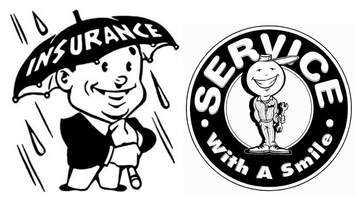The weight of snow could damage your roof. Backed-up gutters might allow water to seep into your house. Vigilance is key during severe weather—stay ahead of the potential hazards outside your home.
In the event of a problem
Sometimes the unfortunate happens—but quick action can minimize the damage. And if you have a standard homeowners insurance policy, it’s likely you're covered for most deep freeze disasters.
- Keep sidewalks and entrances to your home free from snow and ice. You don't want anyone to slip and fall.
- Watch for ice dams near gutter downspouts. Ice dams can cause water to build up and seep into your house. Clear gutters of leaves and debris to allow runoff from melting snow and ice to flow freely.
- Run your swimming pool pump at night when the temperatures are expected to go below freezing. This will keep the water flowing through the pipes.
- Keep your garage doors closed. This will prevent weather damage to whatever's stored in there. Plus, if your garage is attached to your house, the home entrance door from the garage is probably not as well insulated as an exterior door so this will keep more heat in.
- Double check for dead, damaged or dangerous tree branches and have them removed.Even if they looked sound earlier in the year, trees can be affected by ice, snow or wind. When stressed, branches can fall and damage your house or car, or injure someone on or near your property.
In the event of a problem
Sometimes the unfortunate happens—but quick action can minimize the damage. And if you have a standard homeowners insurance policy, it’s likely you're covered for most deep freeze disasters.
- Don't wait for frozen pipes to burst. If your pipes are frozen, take measures to thaw them immediately, or call a plumber for assistance.
- If your pipes burst, first turn off the water. You know now where the main water shut off is, right? Cut off the flow, then attend to the mess and …
- Properly dry and repair any water damage. This will help prevent any potential problems with mold.
- Call your insurance professional as soon as possible. He or she will help you understand what's covered by your policy. And familiarize yourself with the claims filing process.


 RSS Feed
RSS Feed